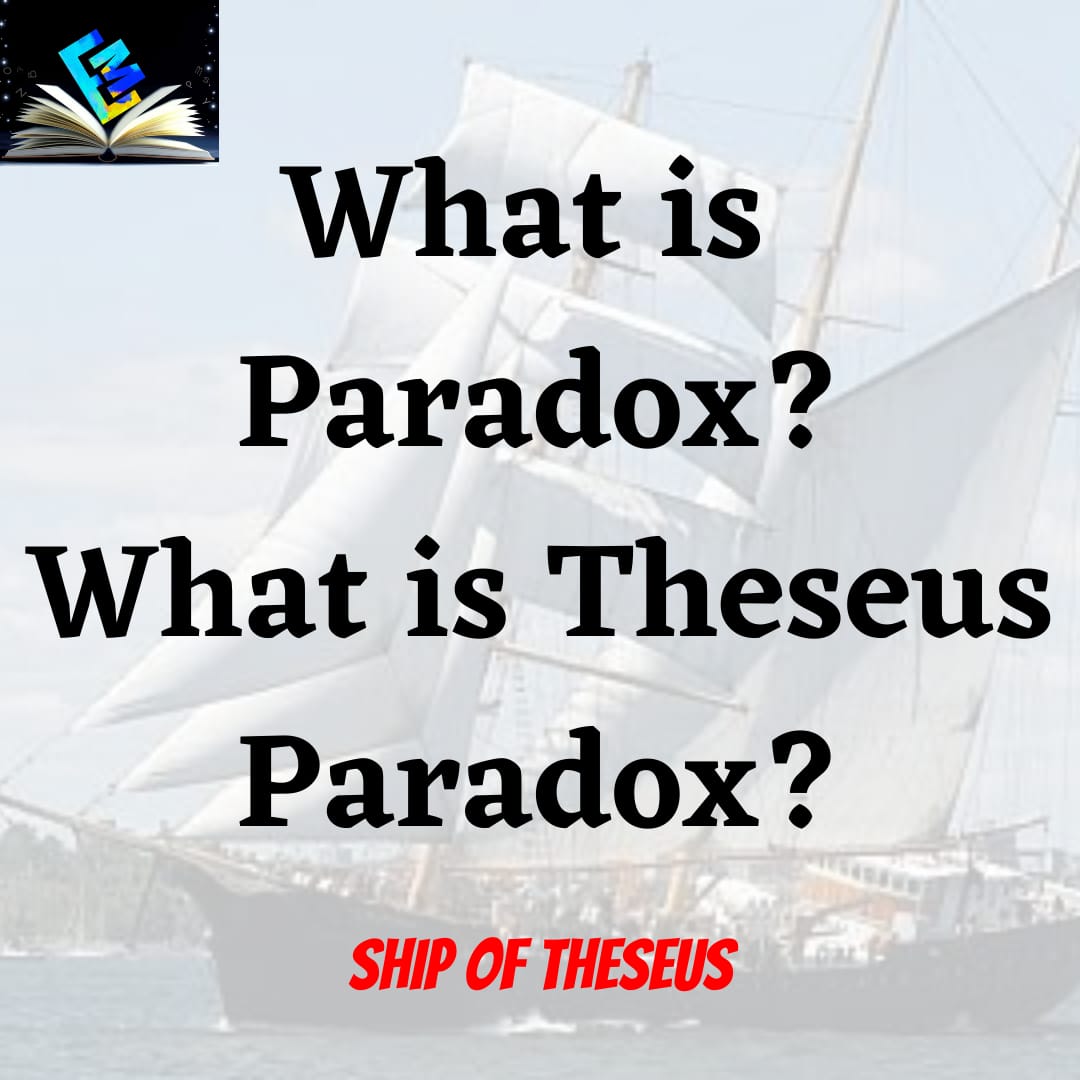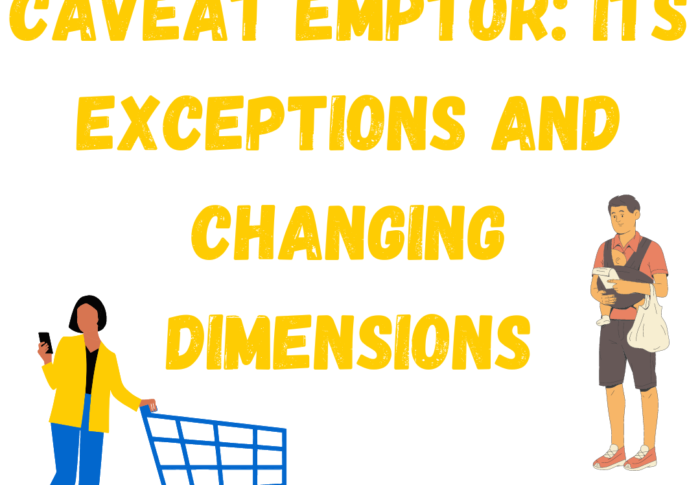
What is Paradox? What is Theseus Paradox | Philosophy
AUTHOR : Shivanshu Agarwal
ABSTRACT
This paper aims to understand the concept of paradox, The Theseus paradox, and different types of philosophical paradox. This paper aims to put a light on the origin of paradox and the views of great people like Socrates & Plato on paradox. The purpose of paradox is to bring attention and provoke new ideas. Also, a Paradox is a type of statement which is self-contradictory to one’s expectations. In this paper, we have discussed the Theseus paradox and given examples of the ship of Theseus and Ophiocordyceps Unilateralism Fungus.
Keywords: Paradox, Self-contradictory, Theseus, Ophiocordyceps Unilateralis Fungus.
Introduction
Socrates said– “If I know one thing, it’s that I know nothing”
Read the above statement. The statement in itself is contradictory, it seems correct and incorrect at the same time. If Socrates[1] knows one thing then it can’t be that he knows nothing and if he knows nothing then how it can be true that he knows one thing. Such statements are called Paradoxes.
Let’s consider another statement which is not a paradox. “It is night time” – you can say easily that it is night because if somebody argues so that you can show them that it is night while putting your finger towards the sky but paradoxes are like the statement which are true and false at the same time.
The paradox[2] is a statement that is in itself contradictory but upon scrutiny, it contains some core truth and reason. The purpose of paradox is to bring attention and provoke new ideas. The word paradox came from the Greek “paradoxes”, Para means “contrary to” and Doxa means “opinion”. Which means self-contradictory.
Two types of paradoxes are logical paradox and literary paradox, literary paradox is different from logical because some meanings of paradox are not understandable or contrary in such a way that it cannot be solved into making sense. The literary paradox is unresolvable while in logical paradox you cannot figure out immediately and also literary paradox have some deep truths in them which we can find out by critical scrutiny.
For example – “This statement is a lie” . This statement is very famous and self-contradictory. If it is true, then it is a lie which means it is false, but if it is false then it is a lie, that makes it true.
In some of the plays of William Shakespeare he quoted some paradoxes “I must be cruel, only to be kind” this means it is good to commit some acts which appear to be morally wrong but in support of causes that appear morally correct. If we want to prove some statement of paradox, we have to give the proof by giving another proof and that proof must be supported by another proof, it is called the infinite regress problem. Infinite[3] regress problems are a continuous series of elements in which if we prove the first one we must have to prove another[4] one and it creates a chain of series.
Paradox
Our great philosophers said that it is a fallacy that we get a New Human Body every 10 to 15 days, the reason and concept behind this is that in our body there are many cells like skin cells, colon cells which last for 10 days or 15 days so in the body which we are living in the same body or new one? So are we the same person or a different person? Many philosophers say that as we grow older our lifestyle changes our body develops many health problems and our hair colour changes and replacement of body cells take place every 15 days so our body is not permanent so are we the same as when we are young or we get a new body? The question arises which you are you?
This dilemma was well presented in the paradox of Ship of Theseus[5].
The paradox states that –
“As the planks of Theseus’ ship needed repair, it was replaced part by part, up to a point where not a single part from the original ship remained in it, anymore. Is it, then, still the same ship? If all the discarded parts were used to build another ship, which of the two, if either, is the real ship of Theseus”?
What is the Theseus paradox?
The Ship of Theseus which is also known as Theseus’ Paradox is an ancient thought experiment that questions the nature of identity of changing objects.
It first appeared in “Life of Theseus”, in which the Greek historian and philosopher Plutarch gives the example of the Ship of Theseus, the ship in which Theseus, a mythical king of Athens, and the youth of Athens returned had thirty oars, and was maintained by the Athenians, since the Athenians removed the old parts as they destroyed and they replacing them with new and stronger parts, and made the one ship from older parts of that ship so which two ships is the original ship?
For the logical question of things that arouse that does that ship is the older ship or the new one? or if that ship is not the old ship so at what point did it stop being the same ship? or if no part of original ship was left so will it be called a new ship or even if there is one part of the ship which is left so can it be called the old ship?
We can take the example of the human body. If someone replaces his or her kidney or heart transplantation then the person from whom the kidney or heart have been taken is that person living inside you or you were the same person?
Interpretations and solutions of Theseus’ Paradox:
- The First solution is that after replacing the parts by parts it makes a new Ship of Theseus.
- The Second solution by Hobbes version is that the second ship which is made by the parts of the first one slowly takes the identity of the Theseus ship over time.
In popular culture:
The Indian philosophical drama movie “Ship of Theseus” directed by Anand Gandhi in 2013 very well presented Theseus’ Paradox. In this movie Gandhi questions the dilemma of the Ship of Theseus through organ transplant and various legal and philosophical aspects of it. The movie is an anthology of three stories which explores the questions of justice, identity, free will, meaning of life and death through the eyes of three characters: a photographer, a monk and a stock broker with a common theme of organ donation. It also explores topics like animal cruelty and animal testing for scientific research and illegal organ trade. The movie does not present any concrete solution to the dilemma of the Theseus’ Paradox, instead poses many questions about life and its meaning through various examples.
One such example was Ophiocordyceps[6] Unilateralism Fungus which is a species of fungus found in the tropical rainforests of Brazil. The fungus as we know requires a host body to survive on. This fungus goes a step further where it takes control over the ant’s brain.
Ants perceive the world through the smell of pheromones. This fungus enters the ant’s body through its respiratory tract and enters into the brain. It changes how ants perceive smell, because ants do everything through the smell of their pheromones. This little fungus then makes ants climb up on a stem of a plant and bite hard with huge force. The fungus then kills the ant and continues to grow on its dead body until it is ready to reproduce. Hence a small fungus drives an ant like its vehicle and uses it for food and shelter and when time comes it kills it by rupturing through its head and releasing its spores. The spores of fungus are then further carried by wind in order to find its next prey.
This[7] is one of the very sinister examples of mind control in the biological world. The example of Unilateralism fungus makes a joke of our idea of free will and poses grave questions about the existence of species. If one small fungus can do something like this to a small ant then our body is a microcosm of bacteria and other microorganisms. So, the question arises how do humans know where they are and where they are going to end. How do we know where our environment begins and who is controlling our mind and conscience?
FINDINGS
After Studying various types of paradoxes one could easily figure out that there were not any final outcome of paradox it is just a statements only and the main purpose of the paradoxes is to bring the attention of the readers and to provoke the new thoughts in their mind and ideas in individuals life so that person can think out of the box and can easily do critical reasonings in day today’s life. If we want to prove some statement of paradox, we have to give the proof by giving another proof and that proof must be supported by another proof, it is called the infinite regress problem. Infinite regress problems are a continuous series of elements in which if we prove the first one we must have to prove another one and it creates a chain of series.
SUGGESTIONS
As we have understood many types of paradoxes like Theseus paradox, Menos paradox, Ophiocordyceps Unilateralis Fungus. The answer of all the paradoxes is unknown and one cannot find the answer of these because there is no definite answer of the paradox.
The person should not try to find a definite final answer to paradoxes because there are no such things, they are hypothetical situations and thought experiments that cannot be solved and which are used to demonstrate a larger point in any philosophical discussions.
CONCLUSION
It is in human nature to seek everything explained somehow whether it is possible or not, it shows that humans are hungry for knowledge. There are a lot of questions like what is the meaning of life? and whether god exists or not? To study these questions is called the study of philosophy.
Many people put their efforts in solving these questions and they believe that there is an answer, but in reality, there is no answer to these things and also there is no answer for the paradoxes these are just hypothetical statements, after studying these many concepts we can conclude that there is no right answer for paradoxes. We solve the paradoxes in a way and think that we would find out the differences but in actual reality, if solving a paradox is creating the paradox, then the solution of a paradox is no solution is the solution of the paradox.
BIBLIOGRAPHY
- “Socrates (470-399 BC), was a Greek philosopher from Athens. He was the founder of the western philosophy”
- SAPPHO FORTIS, “What Are You?” Medium, Aug16, 2020. https://aphilosophersstone.org/what-are-you-2f9ac7b06fff
- THE EDITORS OF ENCYCLOPAEDIA, “Paradox” Encyclopaedia Britannica, 28 April 2017, https://www.britannica.com/art/paradox-literature, Accessed 18 March 2021.
- PHILIP PERRY, “This ancient thought exercise will have you questioning your identity”, Big Think ,06 May, 2018. https://bigthink.com/philip-perry/this-ancient-thought-exercise-will-have-you-questioning-your-identity.
- MARIA POPOVA, “The Ship of Theseus: A Brilliant Ancient Thought Experiment Exploring What Makes You” Brain Pickings, 8 Aug, 2014. https://www.brainpickings.org/2016/03/08/plutarch-the-ship-of-theseus-ted-ed/
- JENNIFER LU, “Deep in the Amazon rainforest, parasitic fungi called take over ants’ bodies in order to reproduce”, National Geographic Channel, 18 April, 2019 https://www.nationalgeographic.com/animals/article/cordyceps-zombie-fungus-takes-over-ants
- ED YONG, “How the Zombie Fungus Takes Over Ants’ Bodies to Control Their Minds “, The Atlantic, NOVEMBER 14, 2017. https://www.theatlantic.com/science/archive/2017/11/how-the-zombie-fungus-takes-over-ants-bodies-to-control-their-minds/545864/






